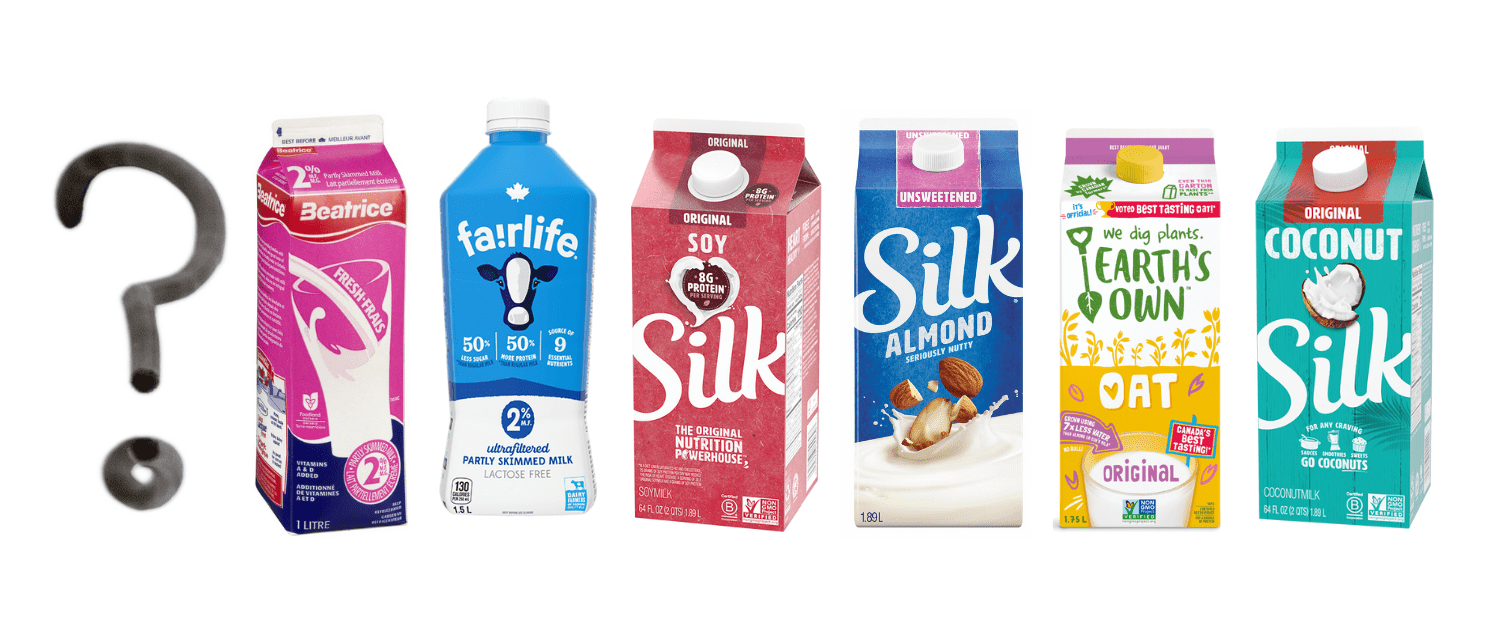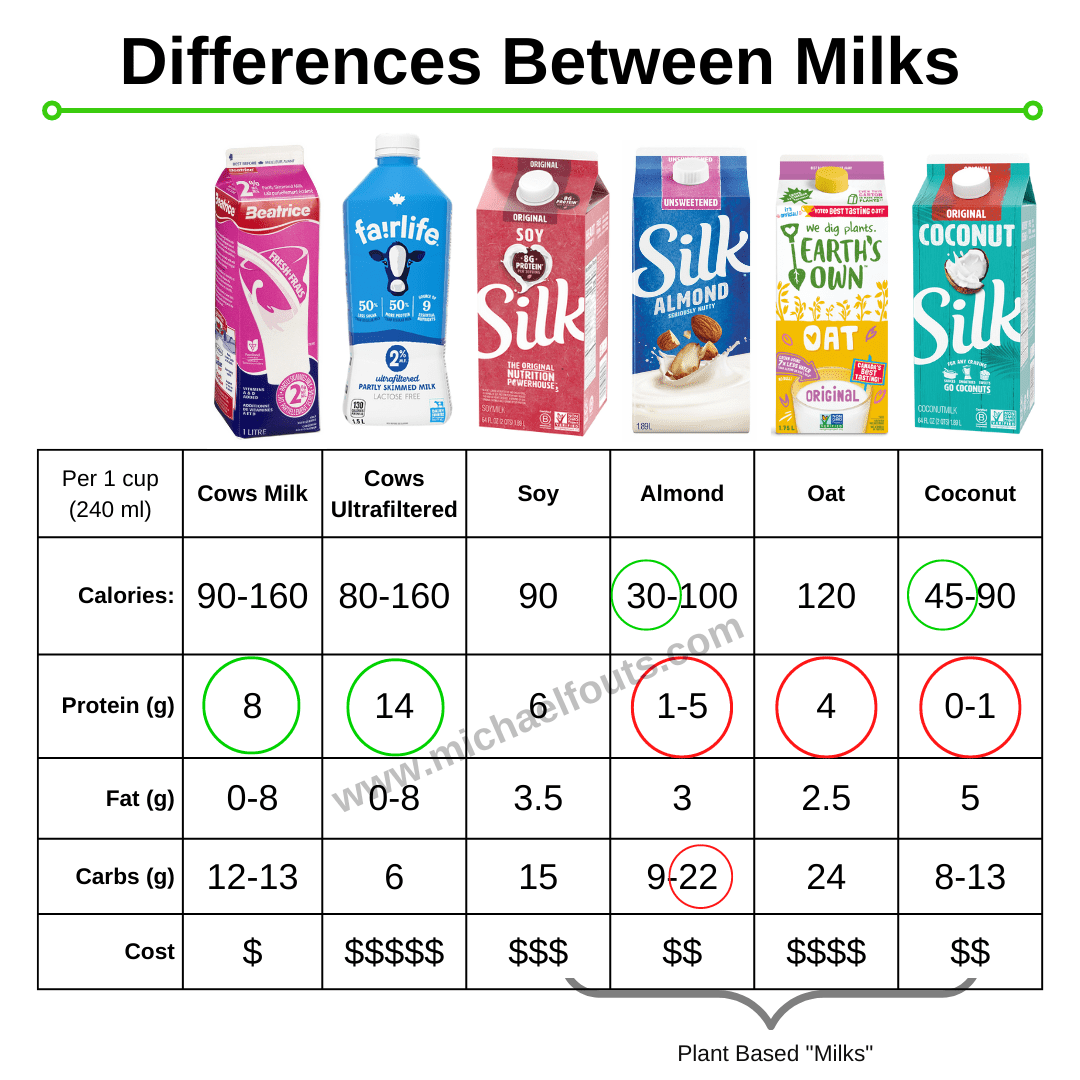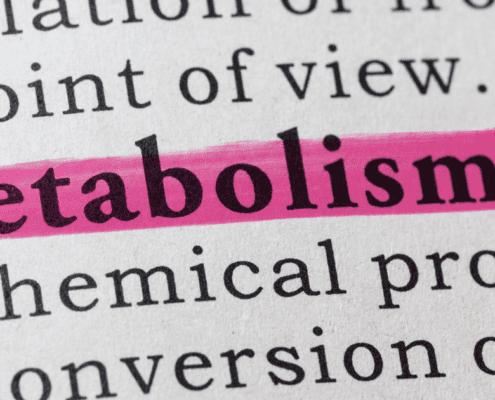What Milk Is The Best Milk For You?
July 1, 2022 by Michael Fouts
Estimated reading time: 4 min
With food the answer is rarely that something is the ‘best.’ Rather, different foods can serve different purposes and goals.
So how do you decide what milk is the “best” for you? There are a few things to consider.
1. Dietary Restrictions
If you’re lactose intolerant, than normal cows milk is off the table for you; unless you use lactase enzyme beforehand. Also, if you’re allergic to nuts then almond and cashew milks are also off the table. This leaves you with either ultrafiltered cows milk, or one of the plant based varieties.
Do you avoid dairy due to being a vegetarian? Than stick with one of the plant based varieties.
2. Taste
Not all milks taste the same. Some can’t stand the taste of skim milk, and some prefer cows milk to almond milk. I’ve even found that amongst the same type of milks, like Ultrafiltered Chocolate Milk for example, the Fairlife brand tastes a lot better than Joyya.
Drink something that matches your taste preference.
3. Nutrient Maximization
Most milks are equally comparable and great sources of calcium and vitamin D. 1 cup gives 30% and 20% of the recommended daily calcium and vitamin D intake, respectively.
- In Canada, Cow and Soy Milk are the only milks that require fortification in Canada. If you are not drinking these, check your nutrition labels to ensure that there are 300+ mg calcium and 2+ ug/100+ IU Vitamin D
- The recommended intake for calcium, according to Health Canada, is 1000 mg for adults (19-50 years old). One cup = 300 mg. Other good sources of calcium = cheese, tofu, spinach, kale, beans, some fortified cereals (Total cereal) and fortified juices (Orange juice, if it’s fortified it will say on the label)
- The recommended intake for vitamin D, according to Health Canada, is 15 mcg/600 IU for children and adults (9-70 years old). One cup = 3 mcg/120 IU. Other great sources of vitamin D = sun exposure (In Canada, vitamin D from sunlight can only be synthesized in your skin during the spring and summer months, around midday, from 10am – 2pm, when the UV index is above 3[1]), fatty/oily fish (tuna, salmon, sardines, mackerel), beef liver, some mushrooms, and fortified food products (milk, egg yolks, yogurt, margarine, orange Juice, ready to eat cereal.
Milks are not, however, equally comparable for how much protein they offer (see table below); plant based milks not listed that are also low in protein = Cashew, Flaxseed, Hemp, and Rice.
- Why protein is important: protein is needed for growth, immunity, proper hormone function, muscles, and meal-time satiation (helps you feel full)
Two other things people should consider is: total calories and carbohydrates (Carbs).
With different varieties of milks, calories will range. This is due to different fat percentage (M.F.% eg. skim vs. 3.5%), filtration with ultrafiltered milk (lactose removed, protein added back), or unsweetened and sweetened varieties – with sugars or artificial sweeteners.
The lowest calorie milks are the unsweetened Almond and Coconut varieties. However, they are similar to the other milks but just have less protein. In my opinion this isn’t a worthy trade-off, unless you already have enough protein in your diet and/or taste is the reason you prefer them.
What’s about carbohydrates? Lower isn’t always the best option. If you’re looking to reduce your caloric intake, then choose milks with lower carbs. If you’re highly active, it might be to your benefit to choose higher carbohydrate milks – like chocolate milk – to replenish your muscles sugar stores (glycogen); I really enjoy Fairlife’s Ultrafiltered Chocolate Milk.
4. Price
Milk prices will vary depending on where you live, but prices (see table above) relative to each other are usually the same. Ultrafiltered cows milk is the most expensive, while cows milk is the least expensive. If you’re looking to optimize the nutrition you’re getting for how much you’re paying, cows milk is your best bet. If you can afford it, ultrafiltered is a good alternative to get more protein and less sugar.
Those who would benefit from buying ultrafiltered:
- Individuals with lactose intolerance, but like the creamy taste of milk
- Athletes who use protein shakes. Instead, replace your protein shake with 2 cups of ultrafiltered milk
- Those looking to limit sugar intake, eg. people with diabetes
- People who enjoy chocolate milk, but avoid it due to the high sugar content (only 13 g of sugar in 1 cup of ultrafiltered chocolate milk, compared to 27 g in traditional chocolate milk)
Some Common Dairy Misconceptions
Click to enlarge.
Main Highlights:
- Calories will range based on %M.F. chosen (skim, vs. 3.5%), Ultrafiltered (lactose removed), and sweetened vs. unsweetened; lowest calories are the unsweetened Almond and Coconut varieties, however they are similar to the other milks but with just less protein (worthy trade off?)
- Cow Milk varieties have the highest protein content; plant based milks not listed that are low in protein: Cashew, Flaxseed, Hemp, and Rice
- All milks are good sources of Vitamin D and Calcium due to fortification
- Cost (highest to lowest): Cows Ultrafiltered > Oat > Soy > Almond & Coconut > Cows
- Saturated fat from Dairy is fine (minus butter), and the overall composition of foods rather more than any one individual nutrient
- Dairy is not pro-inflammatory. At worst, it’s non-inflammatory. At best it’s anti-inflammatory
- Hormones in dairy will be degraded by your body’s natural digestion process
- Dairy doesn’t cause cancer
Till next time,
-Mike







